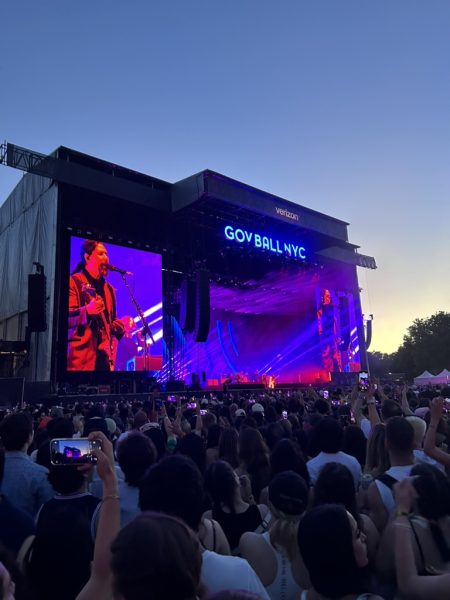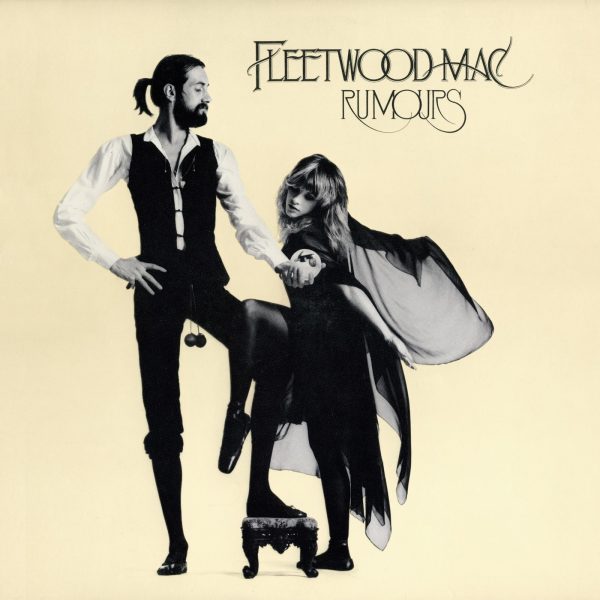“The New Abnormal” Review
The Strokes’ newfound maturity resulted in what might be their best work since their glory days.
After seven years since their last studio album and almost four years of anticipation since their latest EP, The Strokes fans were thrilled to hear confirmation of a new album to be released in 2020 at the New Year’s Eve show in Brooklyn, New York. Whenever any major band goes through a several year layoff without new material, a sense of hope and curiosity is inevitable, leaving fans to ponder what new sounds will be introduced when they return. After the release of their first album that launched them into stardom, the band has shown a gradual decline in effort and attentiveness to their songwriting. An article from the New Yorker states, “Musically, the Strokes weren’t doing anything particularly innovative, and critics of the band excitedly pointed out how easy it was to find precedents for its anxious, hooky indie rock.” The composition and production in “The New Abnormal” shows how the band has finally moved into a new era that finally could separate them from their original “Is This It” formula that changed the course of early 2000s rock.
Having Rick Rubin as a producer shows the seriousness to develop a new direction while still maintaining their recognizable sound. There is an apparent sense of maturity throughout the album showcased through their songwriting and lyrics which had been lacking in their more recent work. Jon Pareles from New York Times says , “‘The New Abnormal” has the Strokes thinking in the long term not only about pop careers but about relationships, even the state of the environment.” Although the wait was long, the seven years have provided time for the band to introspect and truly focus on the sound they want to achieve. With Rubin’s help, they have shown that they still got what it takes to make some killer riffs if they tried.
Album opener “The Adults Are Talking” has an upbeat groove because of the sequenced drums with a prominent hiss from the cymbal, and the layered thin guitars that drive the song forward. Julian Casablancas’s soft and subtle voice mixed with the quick guitar solos in between makes it a classic Strokes sound.
The soft ballad “Selfless” kicks off with a beachy sounding arpeggio that persists throughout the song. Julian’s voice effortlessly ascends during the chorus reaching a beautiful falsetto as he sings “Life is too short but I will live for you” showcasing the soft and chill side of The Strokes that is seen less often.
The chorus to “Bad Decisions” is practically Billy Idol’s “Dancing with Myself,” enough so that Idol himself has songwriting credits. Despite the obvious similarities, the driving drums, upbeat guitar, and catchy sing along chorus still give the song a typical Strokes feel.
“At the door,” their first single since 2013, differers from any other track on the album, lacking the traditional guitar riffs that The Strokes are known for. Instead the song features an abrasive synthetic beat combined with Julian singing lyrics like “Use me like an oar, and get yourself to shore” creating a dark, lonely tone. The song slowly builds the layers of sounds until Julian sings “struck me like a chord” as the guitars are finally introduced into the chorus, completely shifting the direction of the track.
The last song on the album, “Ode To The Mets” has a very gradual beginning, starting with a synthesizer playing a broken chord, then having the addition of the layered guitars building for almost a full minute before Julian starts singing, and then another full minute before the drums finally kick in. The slow build is especially mesmerizing when listening to the song with headphones, as the different sounds layer and play in different ears, leaving it to be a perfect way to end the album.
The steps in the right direction for The Strokes is evident; when it works, the songwriting is crisp and a breath of fresh air. When it doesn’t, it’s Julian mumbling about nonsense while the rest of the band seems to find a place to fill the words with music. Still, “The New Abnormal” is an album filled with maturity and confidence, and is their best release in nearly fifteen years.

Elizabeth is a senior at DHS and just joined Neirad spring of 2020. She enjoys writing articles focused on pop culture, fashion, and current events. In...










